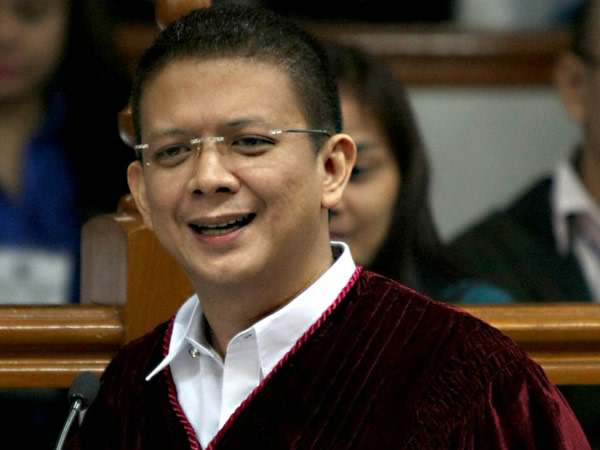Sen. Chiz Escudero wants more private investments in the Public-Private Partnership (PPP) for the program to contribute to the country’s inclusive growth.
In his speech at the last day of the World Economic Forum (WEF) Open Collaboration with East Asia New Champions (OCEAN) 2014 at the Movenpick Hotel, Senator Escudero said that the PPP projects can be expanded to include not only infrastructure projects but also other processes where private sector can help achieve more success.
Escudero said that government plays dual roles in pushing the economy. One is the traditional role, where it lays policies and regulations that are transparent and participative.
The other role, the non-traditional is government’s ability to encourage more participation from the private sector in broad socio-economic and socio-political processes.
“The government currently has 47 PPP projects in the pipeline which is about P376 billion or $8.5 billion. That’s approximately 16 percent of the annual appropriation budget of the government,” he said.
Escudero however said that the goal is to make the number higher through more engagements not only in infrastructure projects as the PPP projects right now are only giving scrap projects to the private sectors.
“We should work towards increasing this, so much so, that the bigger chunk of the expenditures will now be performed by the private sector,” he said.
Increased government spending in the last two years to public infrastructure is partly driving the country’s robust macro economic growth. Last year, the Philippines registered the highest growth in terms of gross domestic production (GDP) at 7.2 percent.
Poverty incidence however remains above 25 percent and has not change much in the last few years. This high GDP growth has also been viewed as jobless growth Joblessness in the country increased 7.2 percent last year compared to 2012’s 7 percent. In 2012, the country’s GDP was 6.6 percent.
Escudero said that under the PPP projects, the government’s “simply giving scraps and leftovers to the private sector to undertake.”
“But it should be the other way around. Government must be able to encourage the private sector to do most of the things that the private sector can simply participate and intervene whenever there is a market failure or whenever there is distortions in the market,” he said.
Citing the efficiency of the private sector, Escudero said that its participation in some public functions, like in education, security and even issuance of drivers license, should increase.
Escudero sited examples which the private sector is actually more capable and more effective than the government is the issuance of drivers’ license and emission standard testing.
On the security side, Escudero said that there are 125,000 policemen in the country, 140,000 Armed Forces and 500,000 security guards.
“The private sector can help so much in the security even on education side. At the primary and secondary level it’s a 70-30 share with 70 percent still public. On the tertiary level however, it’s already at 50-50.”
In the field of energy, he said though that the country is well in the route of privatization and that most of the functions of the Department of Energy (DOE) are now being done by the private sector.
“This should be the role of government- to encourage and make sure that the private sector can participate and perform traditional government functions in increasing manner and in fields never even thought of before.”
He said that the true essence of democracy is sharing responsibility of government undertakings to each individual.
“There is no reason why government and private sector can’t work hand-in-hand,” said Escudero.
On the issue of who leads in these undertakings raised by Maria Ressa, Escudero said there may not be a need to draw the line as to who will lead – the government or private sector.
He added that whoever is more capable of implementing a given undertaking should be allowed to lead.
